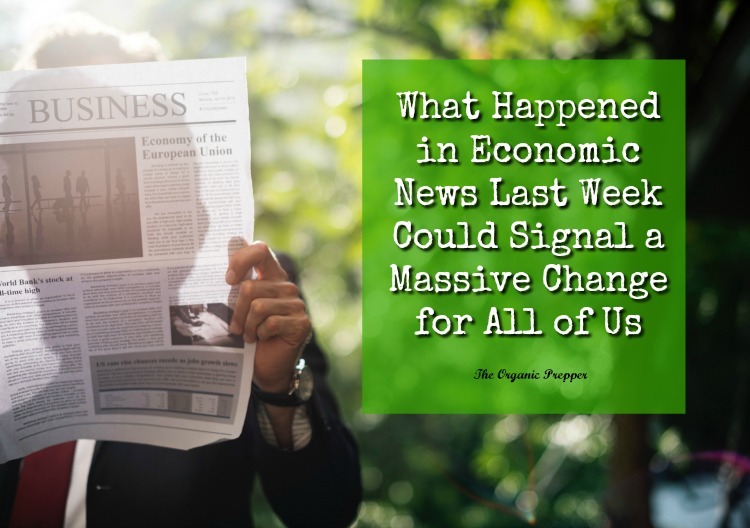If you're new here, you may want to subscribe to my RSS feed. Thanks for visiting!
by M.K. Matthews
Last week was a busy one for economic news, what with a looming tariff war and a job report that is nothing to write home about.
As I wrote earlier, the world’s economy was shakey last week, and the tariff war between the US and China has sent shock waves through the US market. To refresh, here’s a list of all the products that will be affected should this come to fruition. (And there’s every indication that this is just the beginning.)
The March Jobs Report is in.
The Bureau of Labor and Statistics released the March Jobs Report on Friday with the economy adding 103,00 new jobs, which was well under the anticipated estimate of 170,000 new jobs added. The unemployment rate remained at a 17 year low of 4.1%.
However, it’s important to note that 311,000 full-time jobs were lost in March and 310,000 part-time jobs were added. So, many former full-time workers appear to now be part-time workers. Not good.
Let’s recap what happened on Friday in the market.
Confusion continued Friday after Trump issued a request for even more tariffs in the amount of $100 Billion on Chinese products after Thursday’s closing bell. This is in addition to the $50 Billion proposed earlier in the week.
The market responded by pulling back with the Dow lower at -572.46 or -2.34%. The NASDAQ followed closing lower at -161.44 and -2.18%. S&P 500 stayed in step by also closing lower -58.37 and -2.19%. Dow Industrials components Caterpiller, Intel and Boeing all closed more than 3% down.
MarketWatch’s Mark DeCambre reported:
How long has the market been in the doldrums since scoring its most recent record? The S&P 500 index has gone about 48 trading days—not including Friday—without notching a new high.
That lack of fresh highs is notable, not just because the S&P 500 SPX, -2.19% and the Dow Jones Industrial Average DJIA, -2.34% are coming off an uncanny period of dormant volatility VIX, +13.46% and re
peated all-time highs , but also because this fallow period for stocks is the third longest such span since 2013, according to Bespoke Investment Group in a Thursday note. The research and data group note that it is already the longest in about 5 years (see chart below)The Dow and S&P 500 entered a correction phase back on Feb. 8, defined as a drop of at least 10% from a most recent peak set on Jan. 26.
If the S&P 500 goes another month, or about 20 trading days, without notching a fresh high it would surpass the period between the U.K.’s market-roiling referendum to exit from out of the European Union and President Donald Trump’s election, which appeared to unleash Wall Street’s animal spirits. (source)
According to a report submitted in mid-March by MarketWatch’s Ryan Vlastelica, since 1950, the average correction lasted for 61 trading days. That data doesn’t include corrections that expand into a bear market, or a 20% drop from a peak.
Meanwhile, Federal Reserve Chairman Jerome Powell said the central bank would continue patiently on its policy normalization path, adding that a slower pace of rate increases also reduced the risk of “an unforeseen blow to the economy.”
The Fed has hiked interest rates five times since December 2015, including a quarter-point move last month. The central bank has forecasts a total of three hikes for this year. Many analysts think the Fed will eventually hike four times this year, but Powell did not hint at that.
But government officials are saying they don’t expect a trade war.
On Sunday, the discussion of tariffs was subdued.
Appearing on CBS’s “Face the Nation,” Treasury Secretary Steven Mnuchin said, “I don’t expect there will be a trade war” and that the U.S.’s intention is to “continue to have discussions with China.”
Tweeting on Sunday, Trump struck a hopeful note that China and the U.S. can reach an accord absent a trade war.
https://twitter.com/realDonaldTrump/status/982954355509907457
Hang on for a bumpy ride this week, because it looks like anything could happen.

















One Response
Thank you for the update!
I think the weakening of the petro dollar will further impact price increases we see from the tariffs.